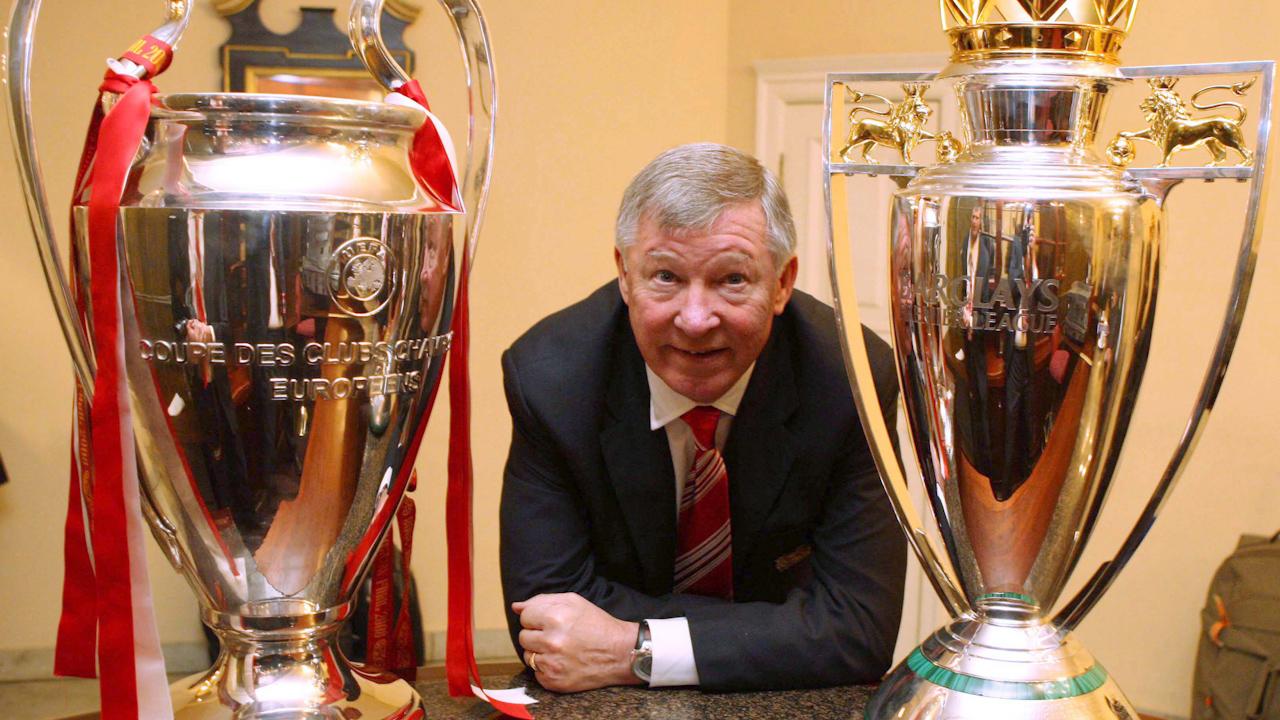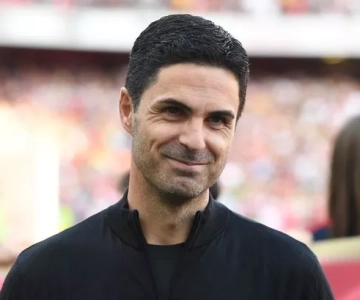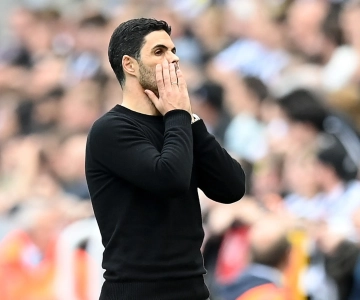UEFA Champions League vs Premier League: which one would you pick? European football competitions happen to be the most lucrative around the world. The clubs with the most fans generally ply their trade in Europe. Amongst them all, two competitions stand out, the English Premier League and the UEFA champions league. The two happen to have a massive fan-base around the world. This is how they compare in some aspects. UEFA was established in 1954 in Switzerland. Its main aim was for Europe to have an independent football governing body. The premier league, on the other hand, was established in 1992. This came after an agreement between division one clubs to break away from Football League. The Premier League offered better television rights deals.
Moreover, it happens to have more fans than the UEFA Champions League. This is shown by statistics, especially on merchandise sales. In 2020 alone, three premier league clubs made it to the top 10 most selling jerseys list. Liverpool, Chelsea, and Arsenal sold more jerseys than Real Madrid. Real happen to be the most successful club in Champions League history. This shows that the EPL is more popular than the Champions League.
Why Did the Two Competitions Start?
UEFA Champions League
Today’s Champions League, formerly the Champions Cup, was born from the idea of the sports editor of the French L’Equipe, Gabriel Ano, who proposed the creation of a competition that would decide which is the best club in Europe. The idea arose in response to the claims of some British newspapers that Wolverhampton is the best club in the world because he beat Honved from Hungary with a score of 3:2 at home in 1954.
The first official match of the Champions Cup was played on September 4, 1955, when Sporting Lisbon and Partizan Belgrade met. In 1966, Belgrade’s “Black and White”also played the final against Real Madrid at Brussels Heysel, but after a 1:0 lead, they were defeated 2:1.
The first Champions League season
After 1991, the cup system was abolished, and it was replaced by a group competition system, which brought with it an expansion of the number of participants. Some of the biggest changes took place after the 1997/98 season, when it was decided that in addition to the champions of one country, the teams that took one of the first four places in the best leagues, depending on the coefficient, would participate in the Champions League. This move significantly contributed to the increase in the quality of the League itself, and on the other hand, made the path to the strongest competition very difficult for teams from less developed European countries.

In the first season of the competition, 16 teams participated, some champions of their countries, some clubs that were at that time highly respected by UEFA. Later, the number of participants was limited only to the winning clubs of the domestic leagues. This qualification system was current until 1997. From the 1997/98 season, the rules were changed to give the tournament more tension (and additional sponsor money). Clubs from the strongest European leagues that were not national champions could qualify as runners-up, and later as third- and fourth-placers in their league.
Recent changes to the Champions League as from 2024/2025
From the 2024/2025 season, the biggest European football competition – the Champions League will be played in a significantly different format. The main changes will be that there will no longer be entries based on national coefficients, as well as that there will be more participants. For example, in the Champions League we will have thirty-six (36) instead of the previous thirty-two (32) clubs.
UEFA started these negotiations in Madrid on Monday, and continued them on Tuesday and then officially announced that there will be a different appearance, first of all, of its biggest competition. A place higher in the Champions League will be given to the fifth country in the UEFA ranking, which has been France for years, but Portugal has come close to the results in recent years. The second one will arrive through the “championship road” qualification, where instead of the previous four (4), in the future five teams (5) will trace their way to the elite. The two new places will be given to the strongest leagues in Europe, that is, two clubs that, according to the coefficients from the previous season only (so not from the total five-year sum), and which did not secure placement through the domestic framework, would play in the Champions League.

Champions League Hall of fame
The first title in the newly formed Champions League was won by Olympique Marseille in 1993 after the victory against Milan in the final, while Nottingham Forest is the only team that has won the title of European champion more times than titles in the domestic championship. The English club is the only team that was relegated to the second division in its country in the season that followed after winning the Champions Cup.
The most convincing victory in the history of this competition was achieved by Juventus on December 10, 2003 against Olympiakos with a score of 7:0. In the Champions Cup, the biggest victory was achieved by Dinamo Bucharest against the Crusaders in the 1973/74 season with a score of 11:0. The biggest victory by total score was achieved by Benfica against Dudelange in 1965/66 with a total score of 18:0. Moreover, the most goals in one game, and there were 14, was seen in the 1969/70 season in the match between Feyenoord and Reykjavík 12:2.

UEFA Champions League anthem
The Champions League anthem, which is sung before the start of each match, is based on the theme of George Frideric Handel and his coronation anthem “Zadok the Priest”, performed by the St. Martin’s Choir and the Royal Philharmonic Orchestra from London.
How are UEFA fixtures played and decided
The competition starts with four qualifying rounds. In each round, two games are played, one at home and one away. Since the 2009/10 season, starting from the third round of qualifications, the clubs are divided into two parts, one for the national champions and one for the clubs that qualified by finishing 2-4 in the national championship places. This was done in order to make it easier for the national champions to reach the group competition.
Clubs that are defeated in the third round of the Champions League qualification and playoffs continue their competition in the Europa League. After the qualifying rounds, 32 clubs are divided into eight groups of four teams each. A mini-league is played in which each club plays each of the three opponents at home and away. In the end, the two first-placed teams advance to the round of 16 of the Champions League, while the third-placed team continues the competition in the Europa League.
Sixteen clubs continue to play in the finals, starting with the round of 16, the winners enter the quarter-finals, semi-finals and finally the two best teams meet in the final. On 24 June 2021, UEFA approved a proposal to abolish the away goals rule in all UEFA club competitions from the 2021–22 season. The final is played in a predetermined stadium (not necessarily neutral) and only one match is played.
Premier League
Despite the considerable success of the clubs during the seventies and early eighties, in the late eighties English football was at its lowest point. Stadiums were dilapidated, spectators suffered poor conditions, hooliganism was at its peak, and English clubs were kicked out of European competitions for five years due to the Heysel tragedy in 1985. The First Division, which had been the top tier of English football since 1888, was far behind leagues such as Italy’s Serie A and Spain’s La Liga in terms of attendance and revenue, and as a result some of England’s best players left for those leagues. However, at the turn of the 1990s, the downward trend began to reverse; The English national team achieved success at the 1990 World Cup when they reached the semi-finals. UEFA lifted the ban on English clubs (resulting in the 1991 Cup Winners’ Cup) and the Taylor Report into stadium safety was delivered in January of that year.
Why the Premier League is so rich?
Money from TV rights became much more important: the Football League received £6.3 million over two years. When the contract was renewed in 1988, the price rose to £44 million over four years. The negotiations of 1988 showed the first signs of a turnaround in the English league; ten clubs threatened to leave the league and create their own “super league”, but were still convinced to stay. As stadiums improved and profits began to rise, the country’s biggest clubs once again began to consider leaving the Football League to take advantage of the growing cash flow. At the end of the 1991 season, a proposal was made to establish a new league that would bring in much more money in all spheres of football.
The break away from Football League to the present day Premier League
The Founder Members Agreement was signed on July 17, 1991 by all Premier League clubs and set the basic principles for the creation of the FA Premier League. The newly created top tier competition would have commercial independence from the Football Association (FA), allowing them to make their own TV rights and sponsorship deals. The strongest argument for the creation of a new league was that with additional income, English clubs would be able to compete with the biggest teams from Europe.

The general manager of LWT (London Weekend Television), Greg Dyke, met with the representatives of the “big five” clubs in 1990, which opened the way for the separation from the then football league. Dyke believed that it was more profitable for LWT if only the matches of the bigger clubs in the country were broadcast on national television and he wanted to see if the clubs would be interested in a bigger share of the money from the TV rights. The five clubs decided it was a good idea to go ahead with it; however, the league would have no credibility without the support of the Football Association and as a result Arsenal’s David Dein halted negotiations to see if the FA would accept the idea. The FA was not on good terms with the Football League at the time and saw this as a way to weaken its position.
Clubs from the First Division left the Football League en masse in 1992 and on 27 May 1992 the Premier League was created as a limited liability company with an office at the Football Association headquarters. This marked a break with the 104-year-old Football League which until then contained four divisions; after that the Premier League contained only one division and the Football League three. There were no changes in the format of the competition: the same number of teams competed in the top tier, and entry and relegation from the Premier League remained the same (three teams were relegated and three entered).
The inaugural Premier League season (1992/93)
The first season of the Premier League was 1992/93 and was initially composed of 22 clubs. Bryan Dean scored the first goal in the Premier League for Sheffield United’s 2:1 win over Manchester United.
The first 22 clubs participating in the Premier League were:
- Arsenal
- Aston Villa
- Blackburn Rovers
- Chelsea
- Coventry City
- Crystal Palace
- Southampton
- Wimbledon
- Everton
- Ispwich Town
- Leeds United
- Liverpool
- Manchester City
- Manchester United
- Tottenham Hotspur
- Middlesbrough
- Norwich City
- Nottingham Forest
- Oldham Athletic
- Queens Park Rangers
- Sheffield United
- Sheffield Wednesday
Luton Town, Notts County and West Ham were the three teams relegated from the First Division in the 1991/92 season before the formation of the Premier League.
Ownership and Structure of the Premier League
At the insistence of FIFA to reduce the number of matches that teams play, the number of clubs was reduced to twenty in 1995, when four teams were eliminated and only two entered. The Premier League operates as a corporation and is owned by 20 member clubs. Each club is a shareholder, with one vote on matters such as changes to rules and contracts. Clubs elect a president, executive director and board of directors to oversee the day-to-day affairs of the league. The football association is not directly involved in the everyday affairs of the Premier League, but it has the right of veto as a special shareholder during the election of the president and executive director, as well as when new rules are introduced.

20 clubs compete in the league, and at the end of the season, the three last-placed clubs are relegated to the Championship. The season lasts from August to May next year, and 38 rounds are played. The first 4 teams qualify for the UEFA Champions league group stage, the 5th qualifies to the Europa league and the 6th and 7th placed teams can play qualifications for Europa league or Europa Conference league depending on cup winners.
The Fan Base
Billions of fans watch the two competitions worldwide. However, the English Premier League has a more significant fan base than the UEFA Champions League. This can be attributed to the fact that the EPL is broadcasted almost every other weekend. English teams are also known as the football teams with the most fans around the world.
The Premier League is the most brilliant product of international football – perfectly marketed and sold around the world. Manchester United plays friendly matches in the USA in front of 100,000 spectators, while Arsenal promotes tourism in Rwanda on the sleeves of their jerseys. Four Premier League clubs have advertisements with Chinese characters on their shirts.
The champions league, on the other hand, is known to take extended breaks over time. The consistency in the English Premier League makes it more lucrative than the Champions League.
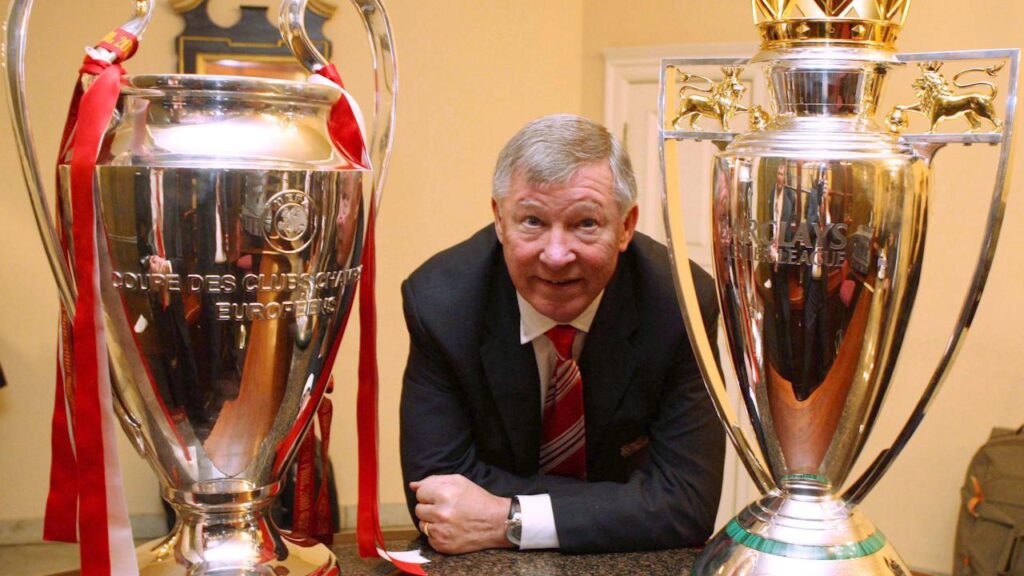
Ticket Sales
The UCL tickets are more expensive and highly bought than EPL ones. This is because Champions League matches are fewer than EPL ones. The fans, therefore, scramble for the few available tickets for limited games.
Sponsorship
Sponsors keep on changing on a seasonal basis. For the 2020/21 UCL seasons, eight sponsors are noted.
These Champions League sponsors are;
- Nissan
- Gazprom
- Playstation
- Heineken
- Lays
- Santander
- MasterCard
- Expedia
The Premier League, on the other hand, has eight sponsors too.These are;
- EA Sports
- Budweiser
- Barclays
- Coca-Cola
- Nike
- Hublot
- Avery Dennison
- Panini
It is worth noting that both competitions have shown their prowess by attracting decent sponsorship deals.
There is a football which, figuratively speaking, is worth fifty nine (59) million euros. For the past few years, Premier League marketers have been selling sports equipment manufacturers the rights to the “official ball” for English league matches. For some time now, that contract has belonged to Nike. In September of last year (2021), that company offered 59 million euros (yes, that’s the correct figure!) to buy the rights for Manchester, Liverpool, Chelsea and others to use the Nike ball until 2025.
Financial Gains
The UEFA Champions League pays better than the English Premier League. As for the prize money, the winner of UCL gets close to an average of 100 million euros after completing the event successfully. The EPL winner, on the other hand, can get an average of 170 million euros. With these stats, the Champions league pays much better per game. This is because a maximum of 15 games is played in the UCL season by a team. In the EPL, 38 matches must be played.
Clubs participating in the Champions League and UEFA competitions will earn a total of more than one billion and 2 hundred million euros this season (2022/2023) from marketing and selling the rights to televise matches in that competition. The profit from this year’s Champions League will be around 30 percent higher than in the previous season.
English professional clubs derive their strength from the piles of money at their disposal. The Premier League earns 6.9 billion euros from television rights in three years. In comparison, the Bundesliga receives 4.6 billion for a period of four years. Even smaller clubs like Bournemouth, managed to invest 90 million euros in their team this season, three times more than some teams from top 5 in the Bundesliga.
Also Read
- Captain Harry Maguire, the victim to daily online onslaught
- Sam Allardyce (Big Sam): The sweet and sour chronicles of sit-back-and-defend coaches.
- Arsenal dominate Chelsea to reclaim top position
- Mason Mount is proving he deserves his place in Chelsea’s starting lineup.
Player and Coach Preference
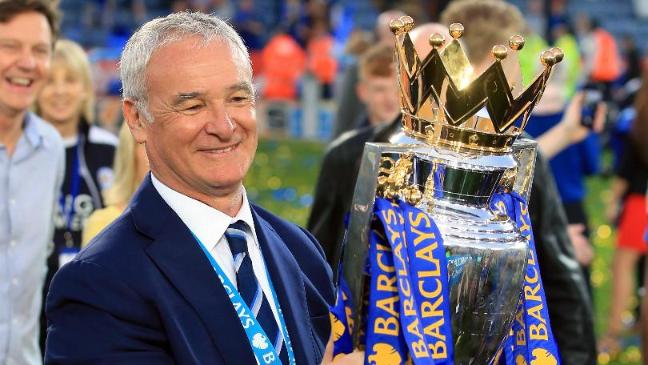
Most players prefer a Champions League medal. This is because it’s more competitive and ranks highest in European club competitions. Players like Buffon have been struggling to win the trophy, even though he has a good number of league trophies. Most managers prefer a league trophy since it appeals more to the fan base. Most legendary managers have been rated by the league titles won. Former Leicester City man Claudio Ranieri is idolized more in England than Roberto Di Matteo. The former won an EPL trophy with Leicester while the latter won a Champions League trophy with Chelsea.
The best 11 players who never won the UEFA Champions League
Many greats in the most popular sport have won the Champions League, but there are also legends who never enjoyed the European Cup. There are top-class footballers, but unfortunately they never enjoyed the ‘cup with ears’. “Sky Sports” made a “dream team” of football players who do not have the trophy in the elite European club competition in their collection.
In goal, the best, but also the worst goalkeeper, Gianluigi Buffon, who lost his third career final. Before him, three “giants”, Lilian Thuram, Lothar Matheus and Fabio Cannavaro. The midfield also consists of three great masters. Arsenal legend Patrick Vieira and his former Arsenal teammate Cesc Fabregas, who now plays for Chelsea. They are accompanied by another former football player who played in the Premier League, Michael Ballack. The offensive line could not have been better. Francesco Totti, Dennis Bergkamp, Zlatan Ibrahimovic and “il phenomeno” Ronaldo complete the squad.
Verdict
As for my take on Champions League vs Premier League, here is my opinion. The champions league pays better per match. It also seems to have the upper hand over the EPL in many aspects. However, the English Premier League remains a fan favorite around the world: today Liverpool is on top of the table, tomorrow they are fourth, all in a span of a week or two. Don’t you love this? In this debate, the Champions League will always come second.
The Champions League has teams from all continents with many different and higher quality teams that compete against one another. This makes the matches much more exciting with many top players playing against one another. In fact, some might even consider the Champions League to be on the same level of prestige as the World Cup!
